Activist and photographer Dave Van de Mark treks to the upper reaches of Redwood Creek to document how its conservation has impacted its ecological condition
As someone who was extremely involved in Redwood National and State Parks’ creation and has survived along with it through its first half century of existence, I have always wanted to document the physical and aesthetic changes I have witnessed over that time. A few weeks ago, my colleagues and friends Max Forster, Ally Gran, Ted Humphrey, and I set off to explore the extremely remote upper reaches of Redwood Creek, within the parks, for three days. Only a handful of park employees, past and present, has ever been there; and none had ever been before I saw it more than half a century ago!
This trip required extensive planning and the right timing—weather, stream flows, and water temperature needed to be ideal. There is no public access to the area, and thus, no trails. Private timber lands (Green Diamond) adjoin the southern boundary of the park here, and we needed their permission to use their roads. It turned out we had to walk over 2.5 miles to reach the park’s boundary. By the end of day one, we made it there, where a large tributary, Coyote Creek, joins Redwood Creek. My companions and I were stunned. I was standing at a spot I had been to only once before—exactly 56 years and 126 days earlier!
I had brought along with me photos from that previous February 1966 boat trip. Back then, over a two-day stretch I saw and photographed the entire length of Redwood Creek, which eventually was included in either the original Redwood National Park or its later expansion. That trip obviously changed my life, and I am undoubtedly one of only a few who have ever experienced the entire stretch of river within the park.
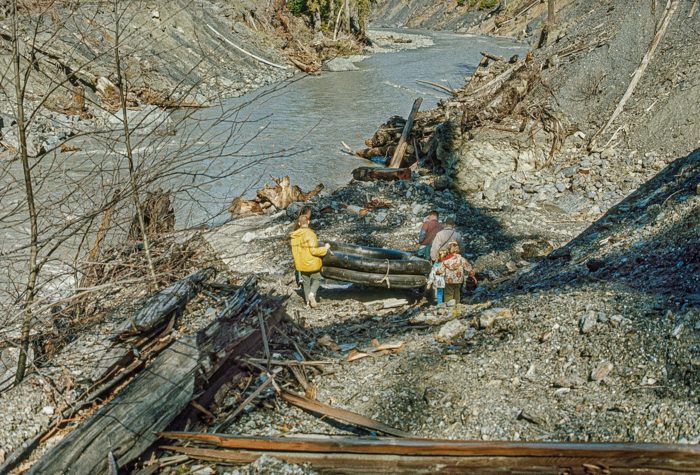
The 1966 pictures are unbelievable: Redwood Creek was being turned into a disaster zone by timber harvesting and road building. Both sides of the river for miles on end were badly eroded. It resembled a muddy unpaved gutter! The world’s tallest known trees at that time were being endangered by these activities.
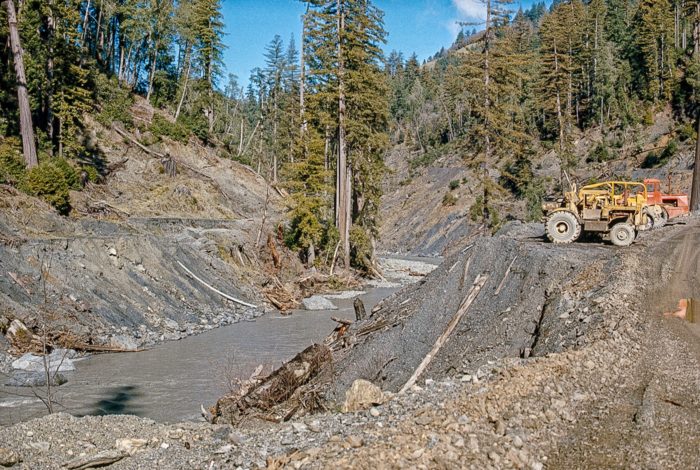
So, what did we see on our recent trip? While not resembling a primeval redwood forest environment, which will take thousands of years to develop, it was nevertheless an incredibly lush beginning toward that end, with all the eroded banks healing nicely! Redwood Creek had carried away much silt and debris, once again exposing bedrock and creating deep, clear pools. We spent that night camped at Coyote Creek, then moved downstream to a better spot on day two. The remainder of that pleasant day was spent exploring as far as we could go—wading varied from difficult to easy and sometimes up to chest deep. I kept my camera in watertight bag!
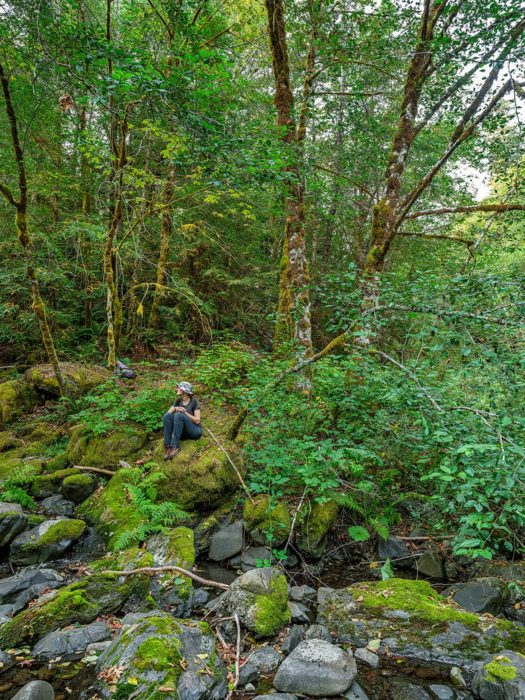
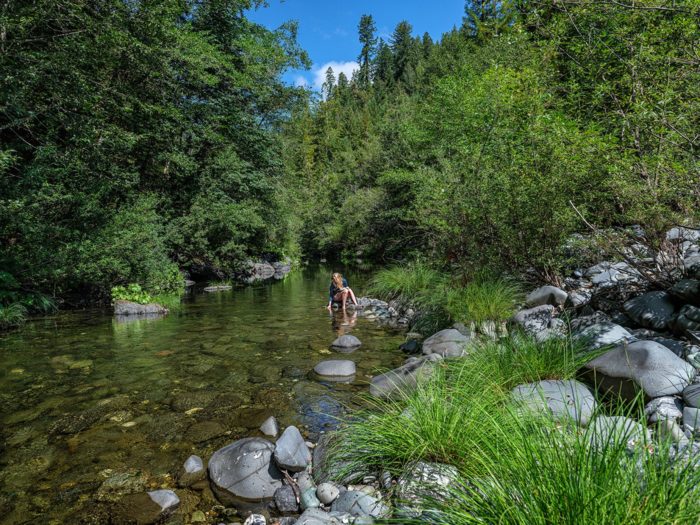
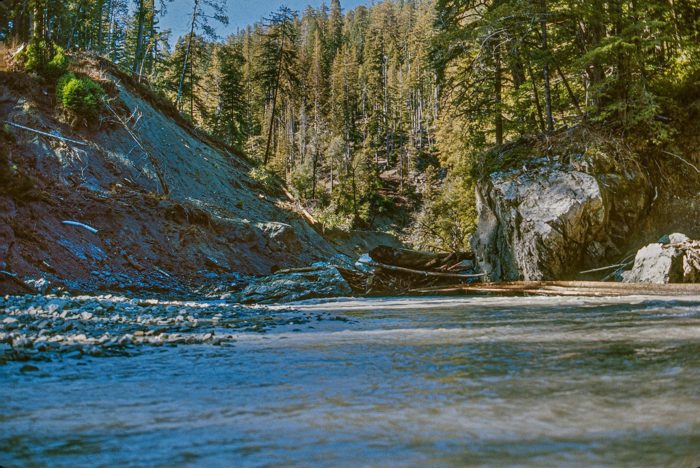
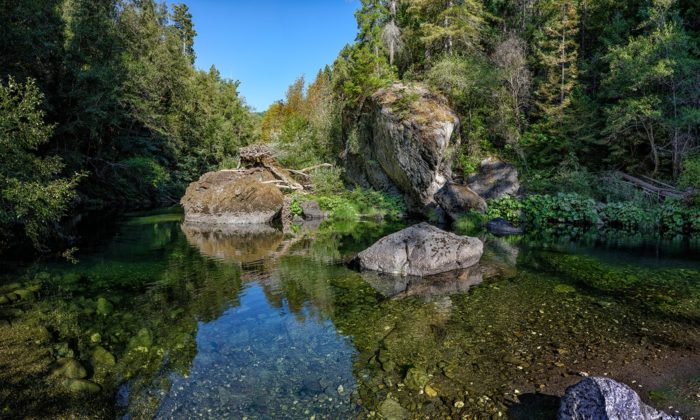
Day three was intended to be a visit into the old-growth redwoods of Devils Creek, probably the remotest part of the entire park. Sadly, we got just a glimpse of it, running out of time. What little time we had to spend there just told me I have to return, sometime and somehow. And certainly, the remaining part of upper Redwood Creek itself that I saw 56 years ago needs to be photographed next year, which will be my 80th!
Visit Dave Van de Mark’s website for more amazing photography over 50 years in Redwood National and State Parks.



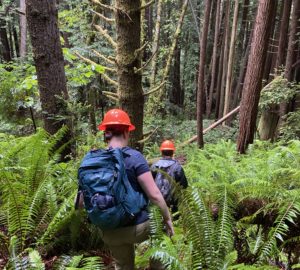
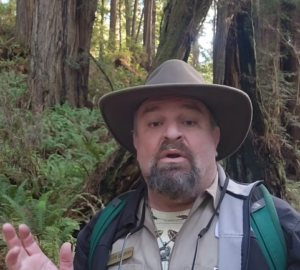

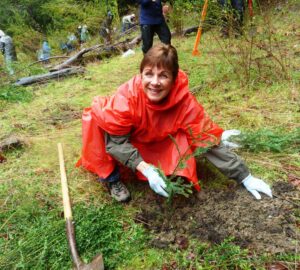
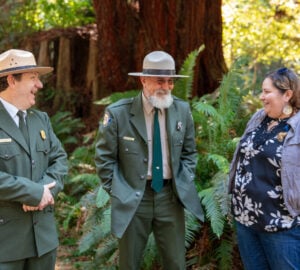
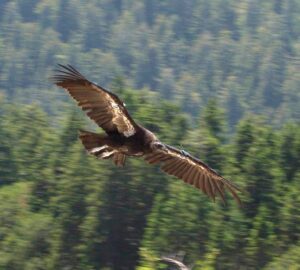
6 Responses to “Before and after: remote areas of Redwood Creek, 50+ years after its conservation”
Scott Lehmann
Thank you for the (dreadful) “then” and (inspiring) “now” photos. I’m reminded of backpacking a 25-mile section of the Loyalsock Trail NE of Williamsport (PA) last year, through lovely forest with large mature hardwoods and little undergrowth. Afterwards, I learned from books on local history with old photos, that the whole area had been completely clear-cut by 1900. Evidently, if you just leave nature alone for 120 years (and there’s enough rain), you get a reasonable facsimile of the forest the originally clothed this section of the Allegheny Front.
Jennifer
I love this story! So inspirational and reaffirming that we can and must make a difference.
Also that I want to be doing the same thing on the Eve of 80 ;)
Harry Johnson
Thanks for the ability to access, observe and photograph this remote locale. Years ago living and raising a family in CA we spent many happy hours in redwood and sequoia areas. Establishment of Redwood NP was a great act.
Thanks again for your work.
Mike Turek
When the NPS purchased logged over lands from the culprits who committed the crime many of us thought this too was a crime. It has turned out well.
Tom Weisend
Great article Dave. I was able to get to Devils Creek soon after the park was expanded via the roads that still were in place. That area was amazing as was the amount of clear cutting that had been done also: I saw Steve Madrone this past year and he said the rocky gorge park just downstream had blown out all the sediment and had nice pools again. Thanks for the story! I did a bit of exploring there in the 70’s with some folks. Many areas are now gone filled with Alder and some sprouts:
Dave Van de Mark
Thank you Tom, did you take any photos that you would be willing to share. Email me at dvandemark2@gmail.com.